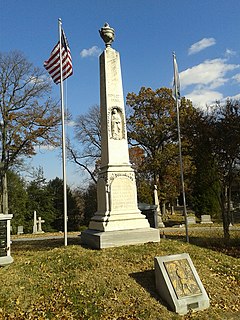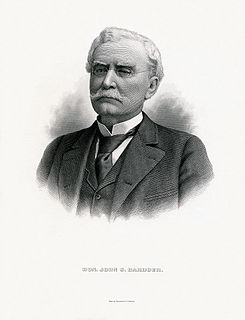
McLean is an unincorporated community and census-designated place (CDP) in Fairfax County in Northern Virginia. McLean is home to many diplomats, businessmen, members of Congress, and high-ranking government officials partially due to its proximity to Washington, D.C. and the Central Intelligence Agency. It is the location of Hickory Hill, the former home of Ethel Kennedy, the widow of Robert F. Kennedy. It is also the location of Salona, the former home of Light-Horse Harry Lee, the Revolutionary War hero. The community had an estimated total population of 53,673 in 2015, according to estimates prepared by the United States Census Bureau. It is located between the Potomac River and the town of Vienna. McLean is known for its luxury homes and its nearby high-end shopping destinations: the Tysons Corner Center and the Tysons Galleria. The two McLean zip codes - 22101 and 22102 - are among the most expensive ZIP Codes in Virginia and the United States. In 2018, data from the American Community Survey revealed that McLean was the 3rd wealthiest city in the United States, based on its poverty rate of 2.6% and its median household income of $190,258.

Pimmit Hills is a census-designated place (CDP) in Fairfax County, Virginia, United States. The population was 6,094 at the 2010 census. In practical terms, it is more of a neighborhood within a densely populated urban area than a traditional town.

Rose Hill is a census-designated place (CDP) in Fairfax County, Virginia, United States. The population was 20,226 at the 2010 census. Built in the mid-1950s, Rose Hill is the largest of the subdivisions that make up the CDP, which is just southwest of Alexandria; others include Wilton Woods, Burgundy Village, and Winslow Heights. Street addresses are in Alexandria ZIP codes 22310, 22303 and 22315.

State Route 123 is a primary state highway in the U.S. state of Virginia. The state highway runs 29.27 miles (47.11 km) from U.S. Route 1 in Woodbridge north to the Chain Bridge across the Potomac River into Washington from Arlington. It goes by three local names. From its southern terminus to the Occoquan River Bridge, it is known as Gordon Boulevard. From the Occoquan River Bridge to the city of Fairfax it is known as Ox Road. From Fairfax to its intersection with I-495 in Tysons Corner it is known as Chain Bridge Road. East of Tysons, it is known as Dolley Madison Boulevard. SR 123 is a partial circumferential highway in Northern Virginia that connects Woodbridge in eastern Prince William County with the independent city of Fairfax and the Fairfax County communities of Vienna, Tysons Corner, and McLean, the last the home of the National Counterterrorism Center and the Central Intelligence Agency. The state highway also connects all of the major highways that radiate from Washington, including Interstate 95, I-66, US 29, US 50, SR 267, and the George Washington Memorial Parkway. Furthermore, SR 123 crosses another pair of circumferential highways, I-495 and the Fairfax County Parkway, and SR 7, a major northwest–southeast highway through Northern Virginia. The state highway is a part of the National Highway System for its entire length.

Pimmit Run is a 7.8-mile-long (12.6 km) stream in northern Virginia that runs from Fairfax County to the Potomac River at Chain Bridge in the Arlingwood neighborhood of Arlington.

The earliest electric railway, or streetcar line, in Northern Virginia opened in 1892. At their peak, when merged into a single interurban system, the successors of this and several other lines ran between downtown Washington, D.C., Rosslyn and Arlington Junction – in present-day Crystal City – and out to Mount Vernon, Fairfax City and Nauck. Electric trolleys also went west from Georgetown and Rosslyn on the Washington and Old Dominion Railway's (W&OD's) Bluemont Division via Leesburg to the town of Bluemont at the base of the Blue Ridge Mountains. In addition, electric trolleys of the W&OD's Great Falls Division traveled from Georgetown and Rosslyn via Cherrydale and McLean to Great Falls Park. Despite early success, the streetcars were unable to compete with the automobile and with each other, and, plagued with management and financial problems, ceased operations in the 1930s and 1940s.
John Strode Barbour Sr. was a nineteenth-century politician and lawyer from Virginia. He was the father of John Strode Barbour Jr. and the first cousin of James Barbour and Philip Pendleton Barbour.

Little Hunting Creek is a 3.6-mile-long (5.8 km) primarily tidal tributary of the Potomac River located in Fairfax County, Virginia, not to be confused with Hunting Creek farther north. A stone-arch bridge, completed in 1931, carries traffic on the George Washington Memorial Parkway across the narrow mouth of the creek, located 96.6 miles (155.5 km) upriver from the mouth of the Potomac. The Washington family built its Mount Vernon plantation on the Potomac River along both banks of Little Hunting Creek during colonial times. The creek is bordered by residential communities in addition to the Mount Vernon property. It is a popular location for recreational fishing, and much of the wildlife characteristic of the tidal Potomac wetlands can be spotted there.
Towlston Grange is an 18th-century plantation in Great Falls in Fairfax County, Virginia, United States. The estate served as a residence for several prominent members of the Fairfax family. Towlston Grange is located at 1213 Towlston Road in Great Falls. There is a photograph of Bryan Fairfax's Towlston Grange in its unrestored state, taken by "The Rambler" of the Washington, D.C. Evening Star newspaper in 1918, that shows a 1 1⁄2-story clapboarded house built in the English tradition.[4]

Clarens or the Clarens Estate is a 19th-century Federal-style mansion in Alexandria, Virginia. Clarens is best known as the residence of James Murray Mason, a United States Representative and United States Senator from Virginia and grandson of George Mason, a Founding Father of the United States.
James Barbour was a Virginia lawyer, planter, politician and Confederate officer. He represented Culpeper County, Virginia in the Virginia General Assembly, as well as in the Virginia Constitutional Convention of 1850 and the Virginia secession convention of 1861. Barbour also served among Virginia's delegates to the 1860 Democratic National Convention, and as a major in the Confederate States Army during the American Civil War.

Catalpa was an 18th-century plantation near Culpeper in Culpeper County, Virginia. Catalpa is best known as the birthplace of John Strode Barbour, Jr., a United States House Representative and United States Senator from Virginia. Catalpa is also known as the scene of the first encampment of the Culpeper Minutemen.

Hollindale is an unincorporated community in Fort Hunt, Fairfax County, Virginia, United States close to the George Washington Memorial Parkway in ZIP code 22306. As of 2013, it had 945 residents. Mount Vernon Presbyterian Church and Hollin Meadows Elementary School are located within the community. Hollindale is set along the hilly woodlands across from the Potomac. It was built around several estates and on what used to be Sherwood Dairy Farm, and is adjacent to the Hollin Hills community. It is dominated by mid-century modern homes, colonials, and Tudors.

Ivy Hill Cemetery is a cemetery in the Rosemont Historic District of Alexandria, Virginia, United States. Burials began at the site in 1811, when it was a family cemetery, and it received a charter as a community cemetery in 1856. The adjoining residential neighborhood was developed beginning in 1908 as a streetcar suburb of Washington, D.C., as trolley lines of the Washington, Alexandria and Mount Vernon railway extended from Alexandria's nearby Union Station. The cemetery is now also known for its rare and protected flora and fauna.
The Strode Mansion is the former residence of Hudson Strode. The residence includes the main house, a small caretaker's cabin, and a separate writing studio, as well as 27 acres (110,000 m2) of woodland. The Strodes bequeathed their residence to the University of Alabama's Department of English. The property is located at 49 Cherokee Road, Tuscaloosa, Alabama.
Mordecai Barbour was a Culpeper County Militia officer during the American Revolutionary War and a prominent Virginia statesman, planter, and businessperson. Barbour was the father of John Strode Barbour, Sr., member of the U.S. House of Representatives from Virginia's 15th congressional district; and the grandfather of John Strode Barbour, Jr., member of the U.S. House of Representatives from Virginia's 8th congressional district and United States Senator; James Barbour, prominent Virginia statesman and planter; and Alfred Madison Barbour, Superintendent of the Harpers Ferry Armory during John Brown's raid.

John Strode Barbour Jr. was a U.S. Representative and a Senator from Virginia. He is best remembered for taking power in Virginia from the short-lived Readjuster Party in the late 1880s, forming the first political machine of "Conservative Democrats", whose power was to last 80 years until the demise of the Byrd Organization in the late 1960s.
Belvale is an historic house in present-day Fairfax County, Virginia built between 1763 and 1766 by George Johnston (1700-1766), member of the Virginia Assembly 1758-1766, friend of Patrick Henry, and legal advisor to George Washington, who was a frequent visitor to the home. The home's original lands, described as lying on "Doeg's Run", were first granted on July 6, 1698 to Richard Carpenter, who bequeathed them in 1750 to his wife Mary and daughter Ann, who sold the property to Johnston in 1763. Belvale is sometimes called "Belle Vale Manor" in historical records. Belvale was Johnston's country seat; his town home was in the city of Alexandria.















